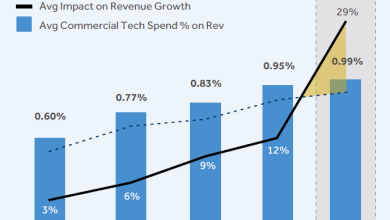Artificial Intelligence (AI) is disrupting a wide variety of fields, from healthcare to logistics. But the wealth management industry is still awaiting its AI revolution. With many processes and decisions still stuck in a manual past, the industry is ripe for AI to accelerate and simplify both client acquisition and service.
Since inception, client acquisition in the wealth management business has been explicitly relationship-driven, with many rounds of dinners to attend and rounds of golf to be played. Once some rapport has been built between the advisor and the prospect, the advisor may finally arrive at a point where they can obtain concrete information on a prospect’s portfolio. This is usually through PDF statements, from which data is manually entered into an analytics solution to get a first glimpse of the portfolio and its characteristics. The advisor then generates a proposal, highlighting how they may change or improve the portfolio.
If the prospect decides to hire the advisor, they will proceed to manage the prospect’s portfolio in an ongoing relationship, handling portfolio management, trading, compliance, and oftentimes much more. The client acquisition process can take several months to even years. It is not only difficult to build trust and rapport with a prospect, but also time-consuming to truly understand and make clear how a new advisor can add value.
Harnessing AI to build trust with prospective and existing clients
AI can streamline internal processes by automating repetitive manual tasks. Statement parsing is a decidedly painstaking process that requires significant manpower due to the high requirement for data accuracy. The large variety of statement formats currently available and the condition of the statements, often in scanned black-and-white format, render traditional parsing ineffectual. Outsourcing is also not an option due to the sensitivity of the data involved. Fortunately, the ongoing development of AI has reached a point where parsing accuracy is acceptable. Industry leaders have cut the time for parsing new and personalized statements down to minutes to a few hours with minimal manual intervention.
AI also helps manage portfolios for existing clients. Not only can it recommend managers and models in the selection and review process, but it can also automate repetitive tasks like portfolio accounting, drift reporting and automatic rebalancing, tax optimization, and general trading management. With robotic process automation (RPA) software, advisors can leverage a friendly UI to connect all their intelligent processes and procedures and create an individual workflow for each client to their specific preferences and timeline. It also reduces compliance risk by flagging abnormal activities promptly without the need for constant manual review which can introduce human error.
With AI, managing existing client relationships goes beyond the golf course. Equipped with the latest Natural Language Processing (NLP) capabilities, chatbots and automated phone lines with voice recognition can accurately understand the client’s issues and provide solutions 24/7. This is especially helpful with procedural questions and providing simple data, saving time for the client and advisor. Additionally, with personal client information, AI can make practical tips for advisors to improve client relationships under the current CRM platform. Say the client is in his 50’s, an avid golfer, and has two beloved bulldogs. When he accessed the previous online reports, he spent the most time on the risk section of the report. Before meeting the client, AI could not only track the client’s movement and generate a financial report targeting risks and risk mitigation with personalized formatting, but also generate personal reports on the client for the advisor about restaurant recommendations that are close to a pet-friendly golf course.
Risk and compliance management are other areas ripe for AI. AI can flag high-risk behaviors from clients and advisors with high accuracy, reducing false-positive results and the associated human error. Additionally, AI can help effectively manage regulatory changes by streamlining documentation and compliance procedures like anti-money laundering (AML) which is ever-evolving and territory-specific.
Change for the better of wealth management
AI has already changed many industries for the better, automating manual tasks and uncovering new insights in previously collected data. As advisors and wealth managers continue to adopt AI solutions for everyday problems, it will be evident that AI can improve efficiency at many points across the process, allowing them to build trust faster and maintain it more confidently than ever before while reducing time on manual tasks and ultimately doing more of what they love – golf and free time with family and clients!



